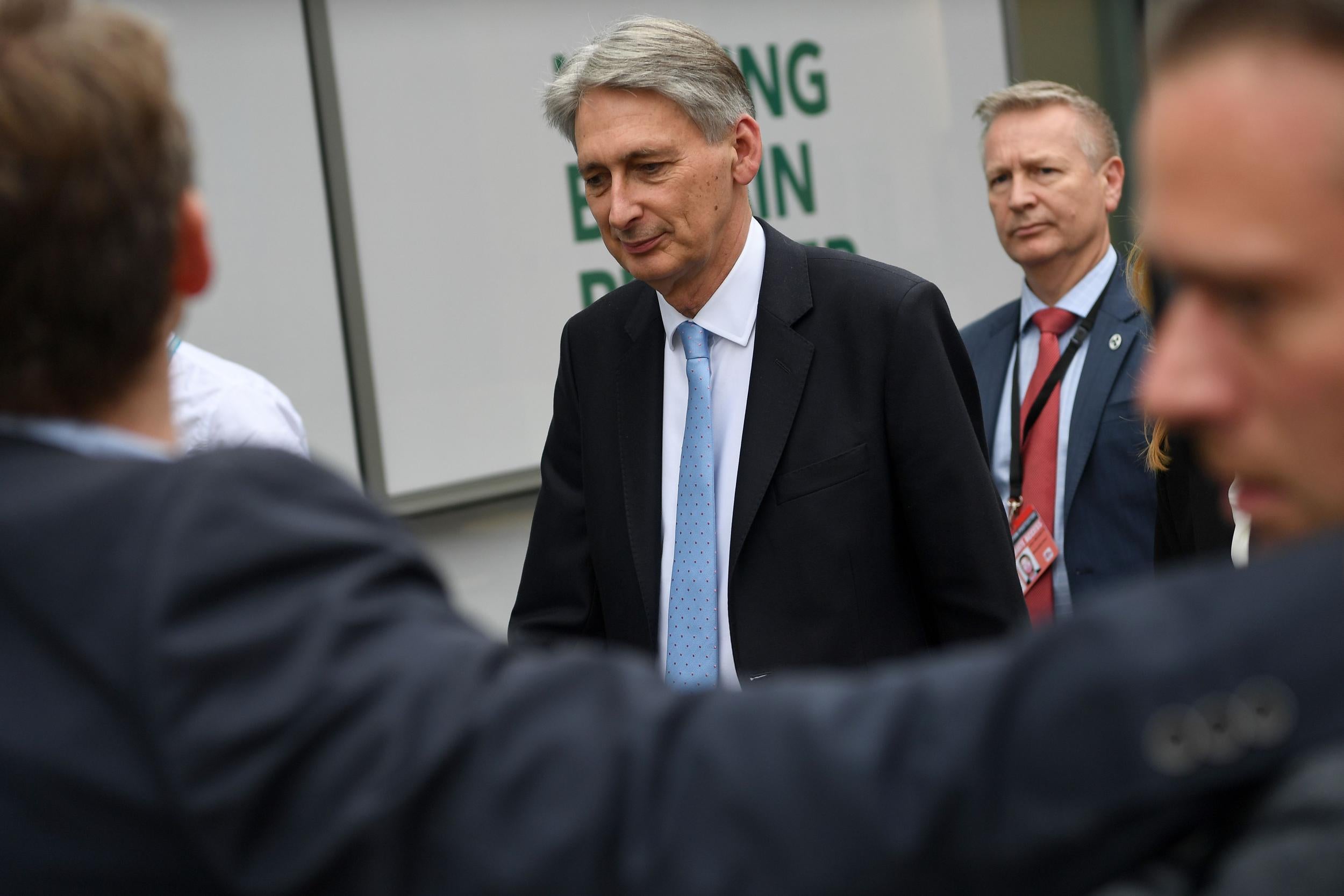Philip Hammond expected to forecast 'nasty' outlook for UK public finances
If the Office for Budget Responsibility downgrades its future productivity growth forecast, as is likely, that will mean a hit to the public finances

The Chancellor Philip Hammond is expecting to unveil a significantly worse outlook for the public finances in November’s Budget, Treasury sources have indicated.
The Treasury’s independent forecaster, the Office for Budget Responsibility, will give an early steer on its view of the UK’s productivity growth outlook next Tuesday and officials in the finance ministry are braced for bad news.
The UK’s productivity growth outlook has a profound influence on the HM Revenue & Customs tax take, meaning a deterioration there is, automatically, bad news for the public finances.
The Chancellor is likely to use the deterioration to argue why the Government cannot give in to growing pressure to loosen spending restraint.
In the March Budget earlier this year, the OBR projected that the Government would still be running a £20.6bn deficit in 2020-21.
But Mr Hammond’s self-imposed fiscal mandate is for the deficit to be below 2 per cent of GDP in that year, implying that the Chancellor actually had about £26bn of fiscal “headroom”.
One suggestion was that this headroom could be used if the UK economy experienced a shock around the time the UK formally leaves the European Union in March 2019.
Others have argued it gives the Chancellor space to reverse contentious incoming cuts to tax credits, scrap the 1 per cent public sector pay cap and spend more on the NHS and social care.
Public borrowing so far in the 2017-18 fiscal year has been running lower than projected by the OBR, but productivity growth has also been much weaker.
If the OBR downgrades its future productivity growth forecast, as is likely, that will mean a hit to the public finances.
“We expect them to look a bit nastier,” said a Treasury source. “There’s quite a lot of expectation of room for more spending but this is the context”.
The Financial Times reported that some officials were expecting a “bloodbath” for the public finances outlook, with the £26bn of headroom reduced to “single digits of billions”.
However, the OBR is some way from finalising its forecasts for the November Budget so it is impossible to put a numerical estimate on the likely downgrade.
The Government’s strict line on spending has already started to fray.
It said earlier this month that it plans to increase the pay of police and prison officers by more than 1 per cent in the next pay round.
But trade unions have accused ministers of “cherry-picking” certain workers for larger rises and are demanding that all of the UK’s five million public sector workers should benefit from a 5 per cent nominal pay hike.
The Office for National Statistics estimates that UK output per hour productivity fell by 0.5 per cent in the first quarter of 2017, against OBR projections in March of a 0.5 per cent increase.
Over 2017 as a whole the OBR had projected that the UK economy’s potential productivity would grow by 1.6 per cent, by1.5 per cent next year and 1.7 per cent in 2019, rising to 1.8 per cent in 2020.
When the OBR unveils its latest Fiscal Evaluation Report next week it says it will outline what weak data and previous forecast errors on productivity growth “imply for the judgements about potential output that we will make in our forthcoming EFO [Economic and Fiscal outlook] which will be published alongside the Chancellor’s autumn Budget”.
It also warned in July that: “Small changes in potential output growth can build up over time to deliver large effects on the size of the economy and therefore the size of the tax base and the affordability of public spending plans.”
Many economists expect Brexit itself to reduce the UK’s long-term productivity performance by reducing trade with our nearest neighbours and also restricting immigration.
In the near-term weaker business investment, brought on by uncertainty about future trade arrangements, is already pencilled in to hurt productivity.
In November 2016, in the wake of the Brexit vote, the OBR revised down its forecast for trend potential productivity growth between 2017 and 2020, resulting in a £7.2bn hole in the public finances by 2020-21 relative to otherwise.
Subscribe to Independent Premium to bookmark this article
Want to bookmark your favourite articles and stories to read or reference later? Start your Independent Premium subscription today.

Join our commenting forum
Join thought-provoking conversations, follow other Independent readers and see their replies